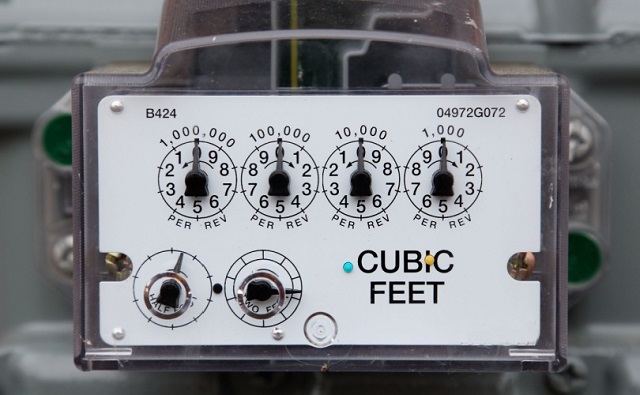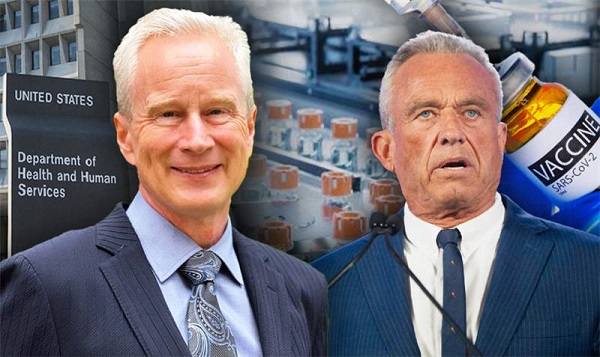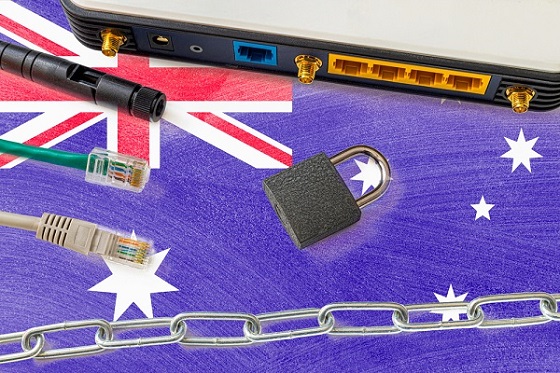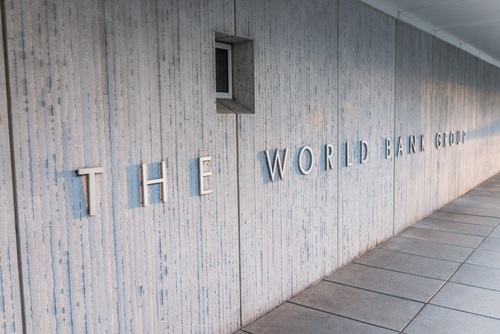Alberta
Another Blow To The Carbon Tax

From Project Confederation
By Josh Andrus
Five years ago, I announced the launch of Project Confederation on Danielle Smith’s CHQR 770 radio show.
That interview changed my life forever.
The project launch was driven by a belief that federal policies – including, but not limited to, the carbon tax – were unfairly targeting Alberta and our economy.
Five years later, we find ourselves opening the next chapter of a long-running saga.
Slowly but surely, Canadians – not just Albertans – have worked out that carbon tax doesn’t make sense, doesn’t work, and isn’t constitutional.
And as the public backlash to the carbon tax grew, the federal government compromised the policy even further, making it even more unpopular and even less constitutional.
On Tuesday, Danielle Smith, now Alberta Premier, announced that her government is going to court to challenge the constitutionality of Ottawa’s selective carbon tax exemption on home heating oils.
The carbon tax, of course, is the levy charged for fuel and combustible waste as outlined in the Greenhouse Gas Pollution Pricing Act and its regulations.
The carbon tax is a tax on everything.
Every product you consume relies on energy-intensive steps in the production cycle – whether it’s the combines harvesting crops, commercial trucks transporting goods, or the electricity powering lights and refrigeration at the grocery store, just to name a few.
This drives costs up throughout the production process in virtually every industry.
The carbon tax also serves as the flagship policy of the Liberal-NDP coalition government, which took office following the 2019 election – just two days before my first appearance on Danielle Smith’s show.
In the eyes of the federal government, the carbon tax represents a beacon to the world, signalling Canada’s new global position as a green, socialist utopia.
In the eyes of the voters, it represents a symbol of the Trudeau government’s unpopularity, a major contributor to ongoing affordability problems and a sluggish economy.
In the eyes of the provinces, it is a clear violation of provincial jurisdiction.
The Act requires provinces to establish these punitive carbon taxes, and if they don’t, the Act allows for Ottawa to impose carbon pricing.
When it was introduced, it faced immediate legal challenges from Alberta, Saskatchewan, and Ontario.
They were joined in opposition to the law by Quebec, Manitoba and New Brunswick – meaning that six provinces, making up over 80% of the Canadian population, believed the carbon tax was a violation of provincial jurisdiction.
The provinces contended that natural resources fall under provincial authority, and that the carbon tax essentially imposes a levy on resource development.
Ottawa, however, argued that climate change constitutes a national crisis and thus falls under federal responsibility.
In 2021, the Supreme Court ruled in favour of the federal government – on the premise that it could be applied as a “minimum national standard.”
“This is in fact the very premise of a federal scheme that imposes minimum national standards: Canada and the provinces are both free to legislate in relation to the same fact situation but the federal law is paramount.”
Just two years later, the Liberal-NDP coalition completely abandoned the minimum national standard by granting a carbon tax carve-out to home heating oils.
Here’s the catch.
In Alberta, Saskatchewan and Manitoba, less than one percent of households use home heating oils to keep their homes warm during cold weather.
That number rises to seven percent in New Brunswick, eighteen percent in Newfoundland and Labrador, thirty-two percent in Nova Scotia and forty percent in Prince Edward Island.
The carbon tax had become such an unpopular policy in Atlantic Canada that the Liberals, trying to stop their collapsing poll numbers, decided to try and regain some votes in the region.
If that weren’t enough, the Liberal government blatantly admitted that the decision was political.
On CTV’s Question Period, Rural Economic Development Minister Gudie Hutchings said “I can tell you, the (Liberal) Atlantic caucus was vocal with what they’ve heard from their constituents, and perhaps they need to elect more Liberals in the Prairies so that we can have that conversation, as well.”
So much for the “minimum national standard.”
Immediately, the constitutionality of the carbon tax was called into question.
Saskatchewan Premier Scott Moe said the move was “not about fairness or about families, it’s only about votes.”
Moe moved swiftly, announcing that SaskEnergy – the Crown corporation that supplies natural gas to residents – would no longer collect or remit the carbon tax on home heating bills in Saskatchewan.
In a misguided effort to curry political favour in the Atlantic provinces, the Liberals have completely compromised the legal standing of the carbon tax and opened the door for provinces to explore new legal avenues against their signature policy.
Now, the Alberta government is seizing that opportunity by filing an application for judicial review of the exemption with the Federal Court, requesting a declaration that the exemption is “both unconstitutional and unlawful.”
“Albertans simply cannot stand by for another winter while the federal government picks and chooses who their carbon tax applies to,” Smith said in a statement. “Since they won’t play fair, we’re going to take the federal government back to court.”
Minister of Justice Mickey Amery added that:
“This exemption is not only unfair to the vast majority of Canadians, but it is also unlawful as the federal government does not have the authority to make special exemptions for certain parts of the country under the Greenhouse Gas Pollution Pricing Act.”
“The federal government isn’t even following its own laws now. Someone needs to hold them accountable, and Alberta is stepping up to do just that.”
The carbon tax has always been unfair to western Canadians, where households use more energy per capita, thanks to our geography and climate.
In a press conference, Danielle Smith went further, saying:
“We’re calling on (the federal government) to repeal the carbon tax. We’ve been calling for that for years. The retail carbon tax is just punitive to taxpayers. It’s punitive to consumers.”
We agree.
It adds an additional expense at every level of the economy, affecting everything from home heating to transportation, and it creates an environment of higher prices on the goods and services we all rely on.
It’s time to take the action that should have been taken long ago.
It’s time to repeal the carbon tax.
Please sign this petition and join our effort to hold the federal government accountable:
Once you’ve signed, please share with your friends, family, and every Canadian.
Regards,
Josh Andrus
Executive Director
Project Confederation
Alberta
Early Success: 33 Nurse Practitioners already working independently across Alberta

Nurse practitioners expand primary care access |
The Alberta government’s Nurse Practitioner Primary Care program is showing early signs of success, with 33 nurse practitioners already practising independently in communities across the province.
Alberta’s government is committed to strengthening Alberta’s primary health care system, recognizing that innovative approaches are essential to improving access. To further this commitment, the Nurse Practitioner Primary Care Program was launched in April, allowing nurse practitioners to practise comprehensive patient care autonomously, either by operating their own practices or working independently within existing primary care settings.
Since being announced, the program has garnered a promising response. A total of 67 applications have been submitted, with 56 approved. Of those, 33 nurse practitioners are now practising autonomously in communities throughout Alberta, including in rural locations such as Beaverlodge, Coaldale, Cold Lake, Consort, Morley, Picture Butte, Three Hills, Two Hills, Vegreville and Vermilion.
“I am thrilled about the interest in this program, as nurse practitioners are a key part of the solution to provide Albertans with greater access to the primary health care services they need.”
To participate in the program, nurse practitioners are required to commit to providing a set number of hours of medically necessary primary care services, maintain a panel size of at least 900 patients, offer after-hours access on weekends, evenings or holidays, and accept walk-in appointments until a panel size reaches 900 patients.
With 33 nurse practitioners practising independently, about 30,000 more Albertans will have access to the primary health care they need. Once the remaining 23 approved applicants begin practising, primary health care access will expand to almost 21,000 more Albertans.
“Enabling nurse practitioners to practise independently is great news for rural Alberta. This is one more way our government is ensuring communities will have access to the care they need, closer to home.”
“Nurse practitioners are highly skilled health care professionals and an invaluable part of our health care system. The Nurse Practitioner Primary Care Program is the right step to ensuring all Albertans can receive care where and when they need it.”
“The NPAA wishes to thank the Alberta government for recognizing the vital role NPs play in the health care system. Nurse practitioners have long advocated to operate their own practices and are ready to meet the growing health care needs of Albertans. This initiative will ensure that more people receive the timely and comprehensive care they deserve.”
The Nurse Practitioner Primary Care program not only expands access to primary care services across the province but also enables nurse practitioners to practise to their full scope, providing another vital access point for Albertans to receive timely, high-quality care when and where they need it most.
Quick facts
- Through the Nurse Practitioner Primary Care Program, nurse practitioners receive about 80 per cent of the compensation that fee-for-service family physicians earn for providing comprehensive primary care.
- Compensation for nurse practitioners is determined based on panel size (the number of patients under their care) and the number of patient care hours provided.
- Nurse practitioners have completed graduate studies and are regulated by the College of Registered Nurses of Alberta.
- For the second consecutive year, a record number of registrants renewed their permits with the College of Registered Nurses of Alberta (CRNA) to continue practising nursing in Alberta.
- There were more than 44,798 registrants and a 15 per cent increase in nurse practitioners.
- Data from the Nurse Practitioner Primary Care Program show:
- Nine applicants plan to work on First Nations reserves or Metis Settlements.
- Parts of the province where nurse practitioners are practising: Calgary (12), Edmonton (five), central (six), north (three) and south (seven).
- Participating nurse practitioners who practise in eligible communities for the Rural, Remote and Northern Program will be provided funding as an incentive to practise in rural or remote areas.
- Participating nurse practitioners are also eligible for the Panel Management Support Program, which helps offset costs for physicians and nurse practitioners to provide comprehensive care as their patient panels grow.
Related information
Alberta
Province considering new Red Deer River reservoir east of Red Deer

Central Alberta reservoir study underway
Alberta’s government is moving forward a study to assess the feasibility of building a new reservoir on the Red Deer River to help support growing communities.
Demand for water from communities and businesses is increasing as more families, businesses and industries choose to live and work in central Alberta. The Red Deer River supplies water to hundreds of thousands of Albertans across the region and expanding water storage capacity could help reduce the risk of future droughts and meet the growing water demands.
Alberta’s government has now begun assessing the feasibility of building a potential new reservoir east of Red Deer near Ardley. A two-phase, multi-year study will explore the costs and value of constructing and operating the reservoir, and its impact on downstream communities, farmers and ranchers, and businesses.
“Central Alberta is a growing and thriving, and we are ensuring that it has the water it needs. This study will help us determine if an Ardley reservoir is effective and how it can be built and operated successfully to help us manage and maximize water storage for years to come.”
Reservoirs play a vital role in irrigation, drought management, water security and flood protection. Budget 2024 allocated $4.5 million to explore creating a new reservoir on the Red Deer River, at a damsite about 40 kilometres east of the City of Red Deer.
Work will begin on the scoping phase of the study as soon as possible. This will include reviewing available geotechnical and hydrotechnical information and exploring conceptual dam options. The scoping phase also includes meetings with municipalities and water users in the area to hear their views. This work is expected to be completed by December 2025.
“Reliable water infrastructure is essential for Alberta’s growing communities and industries. The Ardley reservoir feasibility study is a vital step toward ensuring long-term water security for central Alberta. As we assess this project’s potential, we’re supporting the sustainability of our economic corridors, agricultural operations and rural economy.”
“Water is essential to the agriculture industry and if the past few years are any indication, we need to prepare for dry conditions. A potential dam near Ardley could enhance water security and help farmers and ranchers continue to thrive in Alberta’s unpredictable conditions.”
Once that is complete, the feasibility study will then shift into a second phase, looking more closely at whether an effective new dam near Ardley can be safely designed and constructed, and the impact it may have on communities and the environment. Geotechnical and hydrotechnical investigations, cost-benefit analyses and an assessment of environmental and regulatory requirements will occur. The feasibility phase will also include gathering feedback directly from Albertans through public engagement. This work is expected to be completed by March 31, 2026.
Quick facts
- The Ardley dam scoping and feasibility study will be undertaken by Hatch Ltd., a Canadian multi-disciplinary professional services firm.
- Once the feasibility study is complete, government will assess the results and determine whether to pursue this project and proceed with detailed engineering and design work and regulatory approvals.
- Alberta’s government owns and operates several large reservoirs in the South Saskatchewan River Basin that help ensure sufficient water supply to meet demand from communities, irrigators and businesses, while also maintaining a healthy aquatic environment.
- Water stored at Gleniffer Lake, the reservoir created by Dickson Dam, helps supplement low winter flows along the Red Deer River and helps ensure an adequate water supply for Red Deer and Drumheller.
Related information
-

 Brownstone Institute1 day ago
Brownstone Institute1 day agoThe Most Devastating Report So Far
-

 Business1 day ago
Business1 day agoCarbon tax bureaucracy costs taxpayers $800 million
-

 ESG1 day ago
ESG1 day agoCan’t afford Rent? Groceries for your kids? Trudeau says suck it up and pay the tax!
-

 Daily Caller1 day ago
Daily Caller1 day agoLos Angeles Passes ‘Sanctuary City’ Ordinance In Wake Of Trump’s Deportation Plan
-

 John Stossel1 day ago
John Stossel1 day agoGreen Energy Needs Minerals, Yet America Blocks New Mines
-

 COVID-192 days ago
COVID-192 days agoDr. McCullough praises RFK Jr., urges him to pull COVID shots from the market
-

 MAiD2 days ago
MAiD2 days agoOver 40% of people euthanized in Ontario lived in poorest parts of the province: government data
-

 Alberta1 day ago
Alberta1 day agoProvince considering new Red Deer River reservoir east of Red Deer






